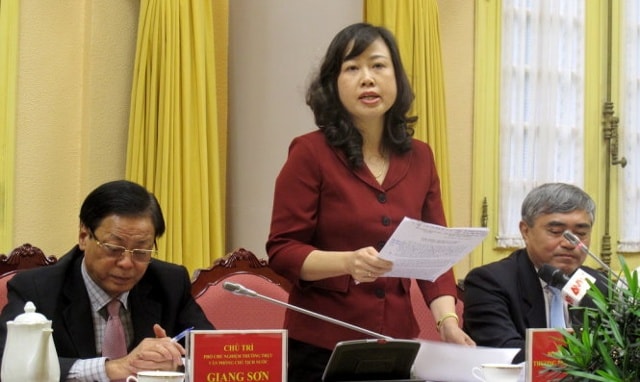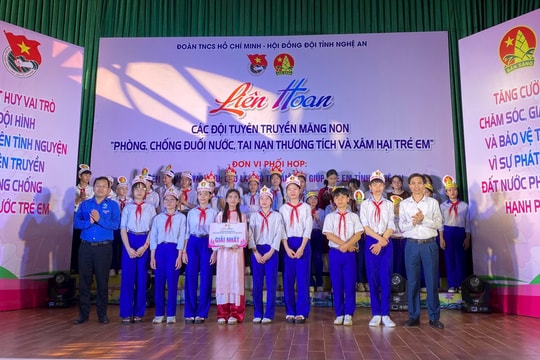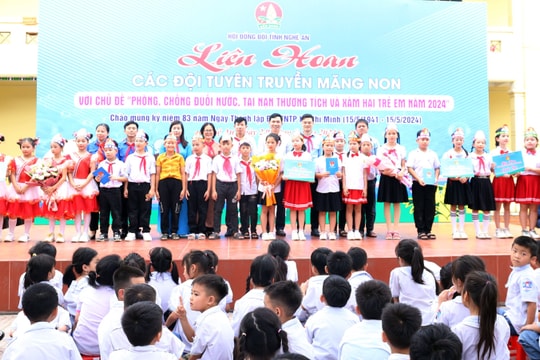Posting private photos of children online requires permission
The reason, according to Deputy Minister of Labor, Invalids and Social Affairs Dao Hong Lan, is that the use of images of children, whether intentionally or unintentionally, on the internet can lead to exploitation, abuse and child molestation.
 |
| Deputy Minister Dao Hong Lan answers the press - Photo: VVT |
On the morning of April 29, the Office of the President held a press conference to announce the President's Order on promulgating a number of laws and resolutions of the National Assembly.
Introducing the 2016 Law on Children, Deputy Minister of Labor, Invalids and Social Affairs Dao Hong Lan said that this law creates a legal framework with innovative provisions on children's rights and duties; principles and measures to ensure the implementation of children's rights; responsibilities of agencies, organizations, educational institutions, families and individuals in implementing children's rights and duties.
Responding to a question about the phenomenon of posting images of children on social networks, the Deputy Minister of Labor, Invalids and Social Affairs said that preventing child abuse is a hot issue today. Every citizen has the right to privacy according to the Constitution, and children are among them.
In recent times, the use of children's images, whether intentionally or unintentionally, on the internet can lead to exploitation, abuse, and child molestation.
Therefore, the 2016 Law on Children strictly prohibits the disclosure of information about children's private lives and personal secrets without the consent of the child (7 years of age or older) or without the consent of the parents or guardians.
However, because parents and guardians may unintentionally use images of children and post them on the internet, the law clearly stipulates the responsibility to protect children in the online environment.
According to the law, parents, teachers, caregivers and family members have the responsibility to ensure that children exercise their right to privacy, except in cases where it is necessary to protect children and in the best interests of children.
Regarding the issue of the current implementation of press planning and the 2016 Press Law, which document has higher value, Deputy Minister Hong affirmed that press planning must comply with the Press Law.
There are currently over 800 press agencies from central to local levels, many of which are operating ineffectively, so the Ministry of Information and Communications has researched and proposed planning and rearranging them for optimization, ensuring that press agencies operate in accordance with their objectives and effectively.
|
According to Tuoi Tre
| RELATED NEWS |
|---|



